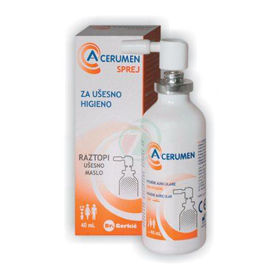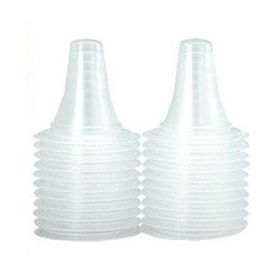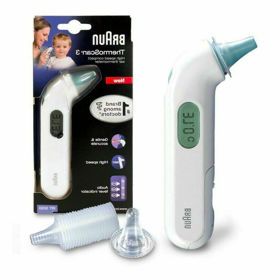Customer question:
Which diseases can otorhinolaryngologists diagnose? Anonymous customer's question
Pharmacist's answer:
Otolaryngologists diagnose and treat various medical conditions and diseases related to the head and neck.
Some common diseases and conditions treated by otolaryngologists include:
- Ear conditions: ear infections (otitis media), hearing loss, tinnitus (ringing in the ears), balance disorders, earwax impaction, eardrum perforations, Meniere's disease.
- Diseases of the nose and sinuses: inflammation of the sinuses, allergic rhinitis, deviated septum, nasal polyps, nasal congestion, disorders of smell and taste.
- Diseases of the throat and voice: tonsillitis, sore throat, speech disorders, laryngitis, nodules or polyps on the vocal cords, gastroesophageal reflux disease (GERD) affecting the throat, and swallowing disorders.
- Diseases of the head and neck: head and neck cancer (including throat cancer and thyroid cancer), salivary gland disorders, facial injuries and fractures, temporomandibular joint disease, and parotid gland problems.
- Pediatric ENT conditions: recurrent ear infections, sleep apnea and snoring in children, speech and language development problems, congenital ear and throat anomalies.
- Sleep disorders: sleep apnea, snoring, insomnia associated with ENT problems.
- Allergies: Otorhinolaryngologists can also diagnose and treat allergies, especially those that manifest in the ear, nose, or throat.
Do otolaryngologists also treat children's medical conditions?
Yes, otolaryngologists also treat ear, nose, and throat health problems in children. Pediatric otolaryngology is a specialized branch of otolaryngology that focuses on the diagnosis and treatment of ENT problems in children. These professionals are professionally trained to address the unique health needs of infants, children, and adolescents.
Pediatric otolaryngologists are trained in child-friendly communication with children and their parents, which is essential for the effective care of young patients. They can use age-appropriate tools and techniques to examine and treat children so that the experience is as good as possible. If your child has problems with their ears, nose, or throat, or if you have concerns about their development in these areas, a consultation with a pediatric otolaryngologist is a good choice.
How is sinusitis treated?
The appropriate treatment for sinusitis must be determined by a doctor, often an ear, nose, and throat specialist (otolaryngologist), based on a thorough assessment of your condition and medical history. To effectively manage sinusitis and prevent complications, it is essential to follow your doctor's advice and take prescribed medication.
Sinusitis can be treated with a combination of self-care measures, medications, and, in some cases, medical procedures. The specific approach to treatment will depend mainly on the type of sinusitis (acute or chronic), its underlying cause, and the severity of the symptoms.
Here are some standard sinusitis treatment options:
Measures for self-care:
- Rest: get enough rest to help your body fight infection and recover.
- Hydration: drink plenty of fluids to stay well hydrated, which can help thin mucus and ease congestion.
- Moisturize: use a humidifier or steamy shower to moisturize nasal passages and relieve congestion.
- Saline nasal irrigation: Saline nasal irrigation can help clear mucus and reduce congestion.
- Warm compress: apply a warm, damp cloth to your face to relieve pain and reduce pressure in the sinus area.
Medications:
- Decongestants: Over-the-counter or prescription nasal sprays can temporarily relieve nasal congestion. They should not be used for more than a few days, as long-term use may worsen symptoms (rebound congestion).
- Steroid nasal sprays: these sprays reduce inflammation and help relieve symptoms in acute and chronic sinusitis.
- Pain relievers: Pain relievers can help relieve sinus pain and discomfort.
- Antihistamines: If allergies contribute to sinusitis, antihistamines may be used to manage allergy symptoms.
- Antibiotics: if bac is suspected or confirmed infection, your doctor may prescribe antibiotics, especially for acute sinusitis. Chronic sinusitis is less responsive to antibiotics.
Management of allergies
In cases of sinusitis caused or aggravated by allergies, treating the underlying allergies with allergy medications or allergen avoidance may be helpful.
Steroid nasal sprays
In cases of chronic sinusitis with significant inflammation, your doctor may prescribe corticosteroid nasal sprays to reduce swelling and promote healing.
Immunotherapy
In cases of chronic sinusitis triggered by allergies, an allergist may recommend allergen immunotherapy (allergy shots) to desensitize your immune system to specific allergens.
Surgery
In cases of chronic sinusitis that does not respond to other treatments, or if there are structural abnormalities in the sinuses that contribute to recurrent infections, surgery may be necessary. Surgical options include:
- Endoscopic sinus surgery: this minimally invasive procedure is used to remove blockages and improve sinus drainage.
- Balloon sinuplasty: a procedure in which a balloon is inflated into blocked sinus passages to widen them.
- Sinus surgery: traditional sinus surgery may be necessary in more complex cases.
Do otolaryngologists also treat cancers?
Yes, otolaryngologists are trained to diagnose and treat various types of head and neck cancer. Head and neck cancer can occur in various areas of the head and neck, including the oral cavity, pharynx, speech (throat), thyroid gland, salivary glands, and other structures in the head and neck.
ENT specialists specializing in treating head and neck cancer are known as head and neck oncologists. They have specialized training and expertise in the diagnosis, staging, and treatment of these cancers.
Otolaryngologists and head and neck oncologists work closely with other healthcare professionals such as oncologists, radiologists, and pathologists to develop comprehensive treatment plans tailored to the individual patient's needs. Early detection and treatment are critical to better outcomes in head and neck cancer cases. If you have concerns or symptoms related to head and neck cancer, it is recommended that you consult an otolaryngologist for a thorough evaluation and appropriate treatment.
Interesting reading: Otolaryngological examination
Interesting reading: Ear-cleaning pump












 Facebook
Facebook
 Instagram
Instagram
 info@moja-lekarna.com
info@moja-lekarna.com

